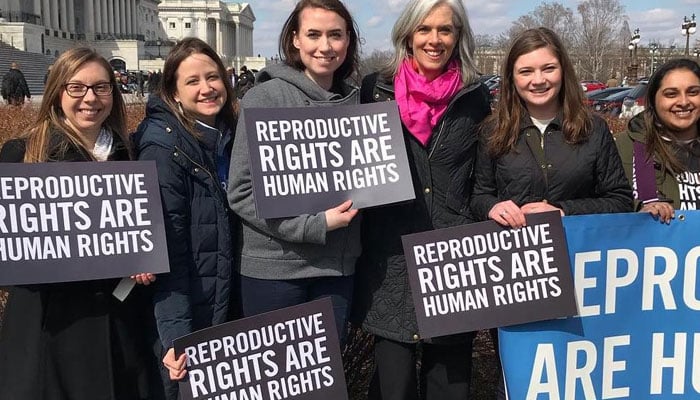A woman's reproductive rights: More American or more Mexican?
Texas’ law becomes more regressive the more one looks at it
November 01, 2021

It’s a study in contrast.
Recently, Mexico’s Supreme Court struck down a law sanctioning abortion in the state of Coahuila. Meanwhile, America’s Supreme Court refused to block a law passed in the state of Texas which places new restrictions on reproductive rights.
I am a solicitor: the Texas law is not only prohibitive, but it is very strange.
Usually, when something is banned, it is the person who does the something in question that is penalised. Secondly, it’s usually the authorities which enforce the law.
Because of the American Supreme Court’s 1973 Roe vs Wade ruling, women have a fundamental right to reproductive rights, so Texas has followed a roundabout approach.
The woman who seeks and gets an abortion is not penalised, but everyone, from the clinic to anyone advising the woman to even the taxi driver that takes her to the clinic is under threat. Furthermore, it’s not the state authorities which will enforce the law.
Rather, private citizens, even those who don’t know the woman and don’t even live in the state of Texas, can act.
This system is supported by a system of bounties. From a legal perspective, there is nothing quite like this since governments used to issue “letters of marque” to privateers, in essence, legalising piracy on the high seas.
Texas’ law becomes more regressive the more one looks at it.
The nearest parallel to this measure is the restrictions placed on Romanian women while the Communist dictator Nicolae Ceausescu was in charge. In a misplaced effort to increase Romania’s birth rate, he forbade abortion and contraception, kept up a system of informers, and forced women to be inspected for signs of pregnancy at their place of work.
Texas does not go quite that far, however, it has created the infrastructure for informers to flourish: if a woman who was once pregnant has a miscarriage but doesn’t want to talk about it, it is technically possible for a co-worker to report her.
Although no abortion happened in this instance, it creates a legal tangle for those around her to clear up. The law also makes no exceptions for the cases of rape and incest: when questioned about this, the governor of Texas pledged to “eliminate rape”.
Women everywhere could be forgiven for responding with a rueful laugh at the governor’s hubris.
I am a woman: personally, I am opposed to abortion, mainly because of my religious faith. I believe that women who have abortions will have to reconcile their relationship with God. Nevertheless, this issue is a proverbial canary in a coal mine: it indicates a wider relationship between the state and women's rights.
The contrasting cases of Mexico and the United States make me wonder which is the future. Are women going to have more or less autonomy in the coming years? Will governments listen to or ignore women? What is the trend? Which way are we going? Are we going to be more American or more Mexican?
There are some signs that Western Europe at least is travelling in the same direction as Mexico. Ireland, the last solid redoubt of Roman Catholicism in Europe, recently relaxed regulation around reproductive rights. In contrast, Afghanistan appears to be heading in a more “American” direction: women are finding their rights ever more restricted.
This includes their right to an education and to work.
The health of a society can be measured in large part by looking at how much respect it accords to women: if it allows women to make choices for themselves, then by and large it is a healthy society. If it restricts their choices, then it is generally a society that is plagued with some sort of illness.
In Texas as in Afghanistan, there is an obsession held by men in power about what women do, and the idea that women somehow need to be confined, held back, restricted. This is not just about abortion: that is merely the signifier.
It may have much to do with male insecurity in a changing world and feeling challenged or threatened by women who speak up for themselves.
In this worldview, women are an object, chattel to be controlled, traded, bought, and sold. Those who believe this, however, should be warned: if any segment of society is unfree, the whole society is unfree. If rights are not available to all, then they are under threat for everyone. As strange as it may sound, in this regard Mexico may be a greater beacon of progress than America.
The author is a solicitor in England. She tweets at @shahjhan_malikk











